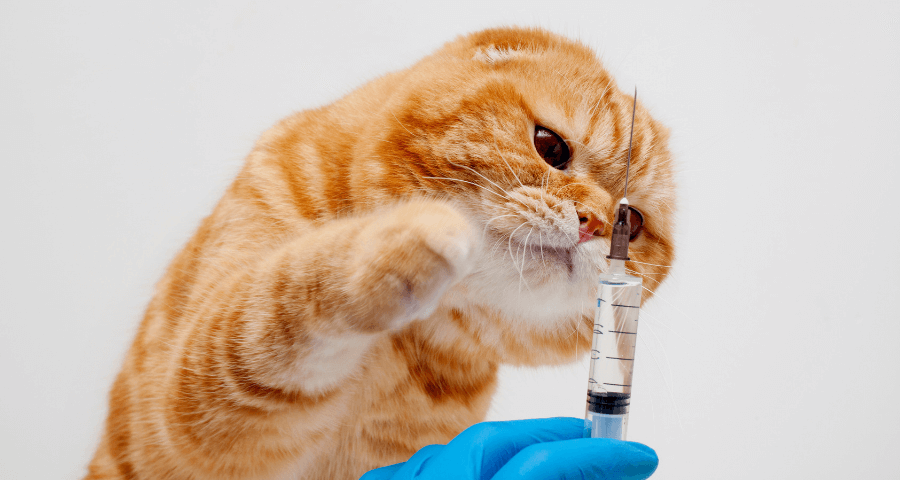With increasing day length and warmer weather, most of us, including our pets, will be enjoying more time spent outdoors. It’s always important to ensure your four-legged friend is up-to-date with routine disease and parasite prevention, but especially so at a time of year when insects are more prevalent and more animals are out and about.
What vaccinations should my pet be getting?
We recommend dogs should be vaccinated with a C5 Vaccination. This protects against parvovirus, distemper, hepatitis, Bordetella and parainfluenza. If you live in an area where leptospirosis is known to occur, it may be recommended for your pet to receive additional vaccination against this.
All cats are recommended to be kept up-to-date with the F4 vaccination – this helps
protect them against cat flu and feline panleukopaenia. Depending on your kitty’s
lifestyle, they may also need to be vaccinated against FIV (feline immunodeficiency virus).
Every pup and kitten should receive a primary course of vaccines (three
separate vaccines done four weeks apart), followed by their first adult vaccination
one year later. From this point, annual vaccinations are recommended.
What parasite prevention should I give my pet?
There are lots of product options for parasite control in dogs and cats, and generally at least two products need to be used per pet for a thorough parasite prevention routine.
Any cat or dog going outdoors should regularly receive products to protect against
fleas and intestinal worms. Dogs should also be on routine heartworm
prevention, but this is optional in cats, as they are not the preferred host for
heartworm, so are less susceptible. If traveling to tick prone areas, tick prevention should be used.
For puppies and kittens, we recommend an intestinal all-wormer every two weeks up
until 12 weeks old, and then continuing worming monthly until six months old. From
this point, your pet should be wormed every three months. In rural areas where pets
have access to livestock, it may be recommended to give your pet a tapeworm
treatment every month in-between quarterly all-wormer doses.
Flea and tick treatments can be covered by combination products. For dogs, topical or chew options are available that last between one and three months. For cats, there are topical products that last up to three months.
For heartworm prevention in dogs, an annual injection administered by one of our vets is the best option, as it can be given at the same time as your pet’s annual vaccination. Alternatively, monthly chews and topical treatments are available.
As a general rule, your pet should be seen for a check-up annually. At this time, we can also discuss the best options for thorough parasite prevention based on your pet’s requirements.
If you’re unsure whether your pet is properly protected, seek advice from our friendly team!






